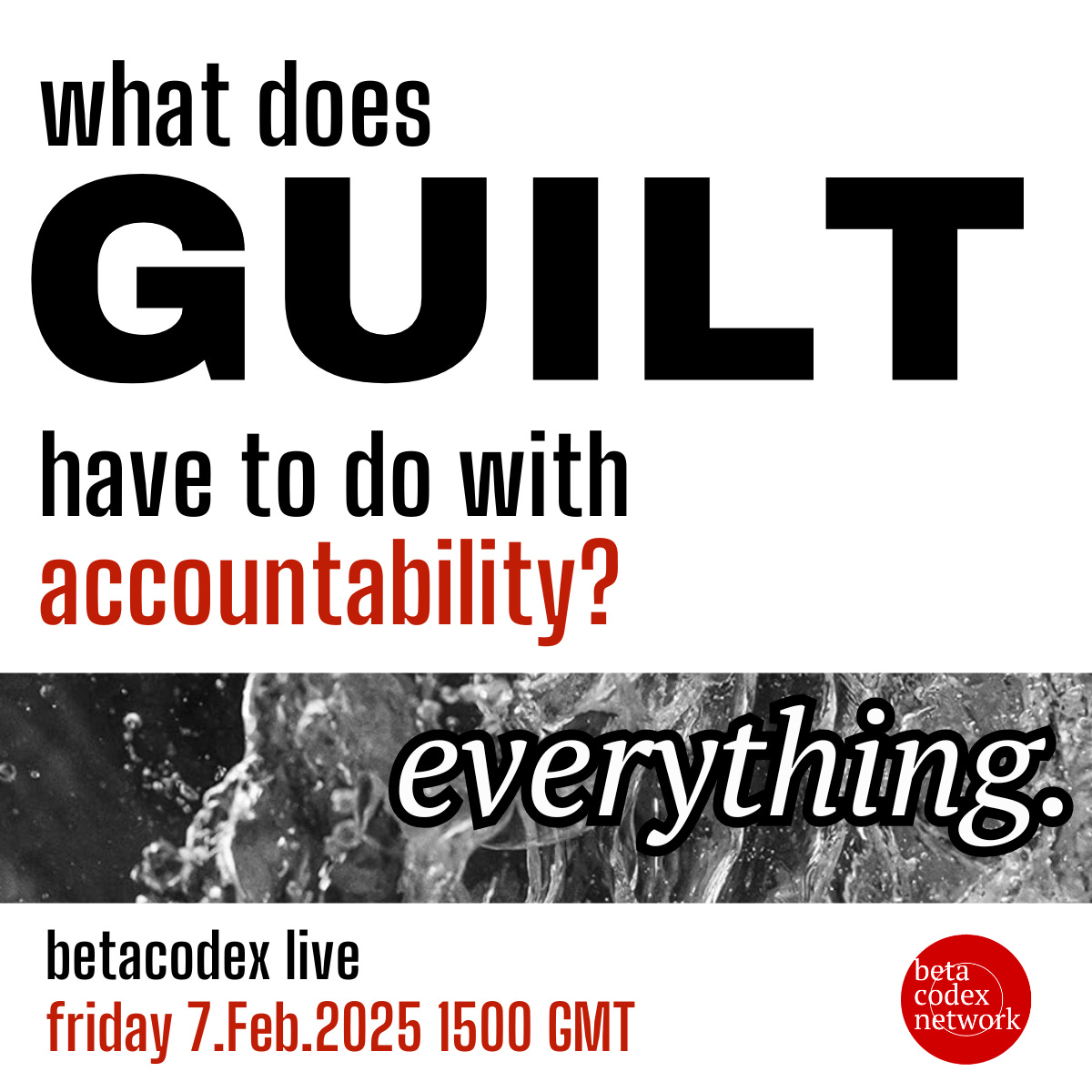Guilt and accountability? Say more.
What does GUILT have to do with accountability? Everything.
Just like “anxiety”, in the world of existential philosophy, the word “guilt” has two distinct flavors. Existential and neurotic. One is natural, one isn’t. Take a guess which is which, and where each one comes from.
And why which one you choose to embrace has everything to do with accountability.
Niels Pflaeging and I will dive into the organizational implications of all this tomorrow at 10:00 AM EST (15:00 GMT).
Watch live on YouTube or LinkedIn.
Continue reading for excerpts of “Confronting Our Freedom”
From Peter Koestenbaum:
"An important revelation of existential anxiety is the understanding of two kinds of guilt. ... In brief, existential guilt is guilt about unfulfilled potential, about self-betrayal, and anger at one's weakness. Neurotic guilt has two layers: the denial of the existence of existential guilt altogether, and the internalization of external and essentially irrelevant rules and values."
— Peter Koestenbaum (1978)
Peter Block on Neurotic Guilt:
If you can accept this idea for a moment and look at our modern organizations, you get a sense of how powerful our organizations are in reinforcing our neurotic guilt. And you see how difficult they (and we) make it to act on our existential guilt and choose to bring our full selves into our place of work.
Peter Block on Existential Guilt:
It is the existence of existential guilt that makes the dream of creating cultures of freedom and accountability possible. I am guilty because I choose to live, choose to say no to certain people and choices. To say yes to pursuing deeper purpose in whatever requirements are required for the whole system to succeed, I, along with peers, decide how to make this moment, this meeting, the way of occupying this room examples of the world we want to inhabit. This is what freedom looks like.
More from Peter Block:
Guilty as chosen and guilty as charged
One of the major shifts in my own thinking about accountability has to with guilt. This was the recognition that much of the guilt I have lived with has been well founded – that to be human is to live with the experience of a particular kind of guilt, that which arises from acts of self-betraval and becoming the person that others wish us to be.
That the origin story of accountability has to do with being accountable to ourselves, as individuals and as members of a community or institution.”
The philosophic insight distinguishes between two kinds of guilt: the existential guilt of betraying our own capacity to be fully ourselves and fully human, and the neurotic guilt of adapting ourselves to what we believe the world expects of us.
Final Thoughts on Guilt from Peter Block:
Last time about guilt
What is interesting about the philosophic insight is that it proposes that we are going to feel guilty, no matter what. It is a feature, if not a benefit, of being alive and human. So the questions become: What kind of guilt do we choose for ourselves? And what do we believe best supports others?
If we believe that an accountable culture comes from the experience of freedom, we would look for ways to support people to be more of themselves. We would adopt strategies of invitation and consent. It would entail stronger listening, deeper and more personal dialogue, self-defined learning goals, and a focus on strengths rather than deficiencies.
The specifics could take a hundred forms, but the simple question of how an institution confronts people with their freedom and asks them to bring all of themselves to work would form the basis of a new conversation. This would begin a shift toward a liberating experience of membership. This brings questions of deeper purpose and community wellbeing to the center of institutional life. These are most often relegated to special occasions and lean on consultants to tell us what our peer groups are doing.





